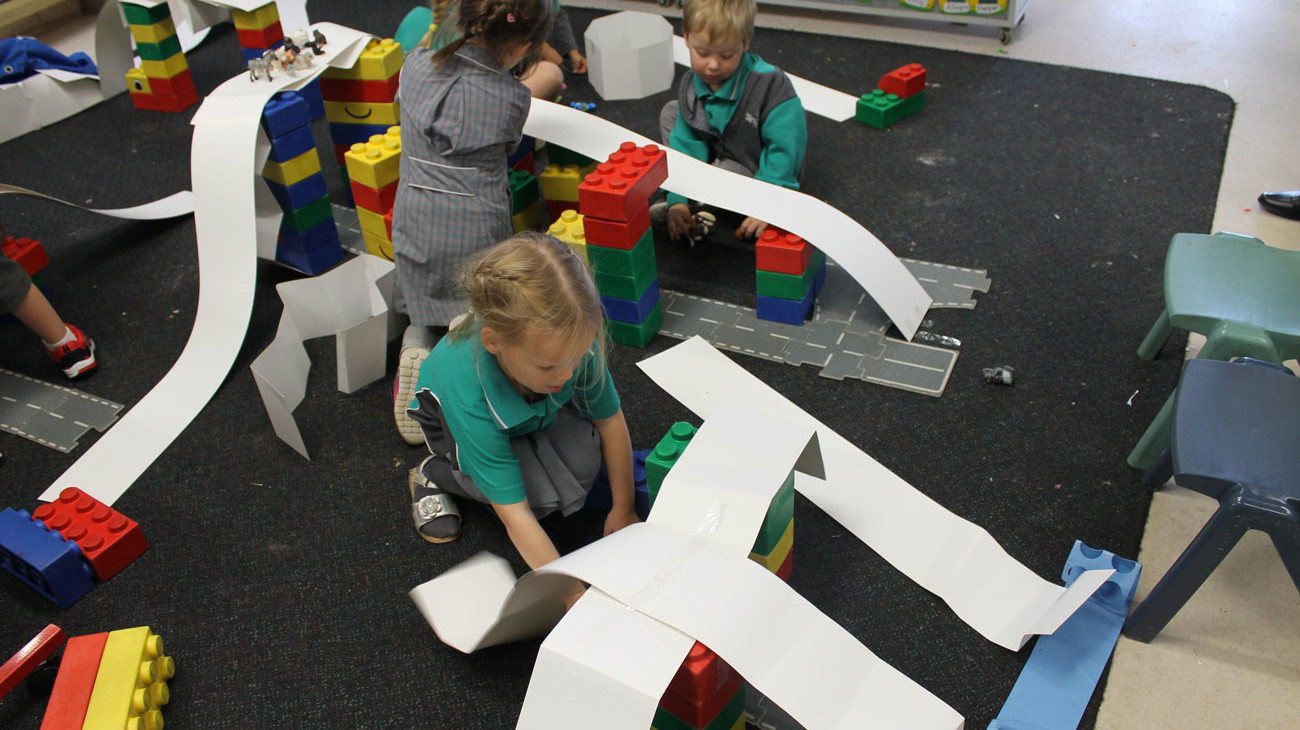Posted Friday, 9 January 2026
Scitech gets Ah! Rated for Fringe
Scitech is returning to FRINGE WORLD Perth with a strictly 18+ show.
The completion of the STEM Learning Project represents a significant milestone for STEM education in Western Australia.

Students test their structures for “Animal rescue”
The STEM Learning Project was established in 2016 to create a suite of innovative resources that support integrated STEM learning, aligned with the WA Curriculum and General Capabilities. Teachers are supported by Professional Learning modules that explain how to implement the resources for a STEM enriched classroom.
The full suite of resources are available from the Department of Education website.
Integrated STEM learning combines core science, technology, engineering and maths subject knowledge with the 21st century skills of collaboration, creative and critical thinking, problem-solving, reflective practice and communication.
This combination of skills and knowledge is recognised as crucial to drive the innovation needed to address global economic, social and environmental challenges as the world increasingly becomes more reliant on information and technology.
The STEM Learning Project (SLP) is a partnership between the WA Department of Education and the STEM Education Consortium, a collaboration between Scitech, the Educational Computing Association of WA (ECAWA),the Mathematical Association of WA (MAWA) and the Science Teachers Association of WA (STAWA).
The SLP directly supports the WA Government’s State STEM Skills Strategy as a pivotal initiative to strengthen STEM capabilities in teachers and students and boost participation in STEM education and career pathways. The resources have been designed to spark student’s interest, enjoyment and engagement with STEM, focusing on solving open-ended, authentic real-world problems.
Over the course of the project, 41 Curriculum Resource Modules and 14 Professional Learning Modules were designed, created and trialled, ready to be implemented into schools across the state in 2020. The resources are for Kindergarten to Year 12 and have been developed with input from West Australian teachers.
The Edith Cowan Institute of Education Research was commissioned to evaluate the effectiveness of the SLP. The report1 shows that overall, the response from teachers has been highly positive:
The “Our magnificent thing” module for Year 1 students focuses on repurposing rubbish, as students consider sustainability and the impact of their lifestyle choices on the environment. 100% of teachers either “strongly agreed” or “agreed” that the lesson developed problem solving and critical and creative thinking. One teacher’s response showed the impact: “I think the deeper learning that occurred was incredible. Each child created something unique and all were very proud and pleased with their results.”
The year 3 module “The long walk” develops an understanding of refugee camps and the problems associated with the loss of personal belongings such as shoes. Students are challenged with designing a shoe using repurposed materials. Feedback showed that 86% of teachers believed the module developed higher order thinking and reasoning. One teacher stated, “Both boys and girls enjoyed the work and they were highly engaged in every part, even the mathematics, and I have children that are not engaged in maths, [who] really struggle.”
“Every bird needs a home” asks year 2 students to design a bird habitat to encourage local bird species to visit, live and breed in the area. One teacher declared the module was “a wonderful resource to integrate with all learning areas. I think there needs to be more of a push that teachers integrate, and children build more.”
Teacher comments for the year 4 “Honeybees” module included, “it gave students a real-life scenario to create an authentic learning experience” and “I saw much engagement for children in their learning.” For “Animal Rescue”, where pre-primary students design and make a model of a structure for animals to safely cross a road, one teacher stated “It allowed for more open-ended learning, therefore catering for a wider selection of learning styles. More children were engaged.”
The STEM Learning Project was completed in 2020, successfully achieving its goal of creating and testing a comprehensive suite of high-quality resources for implementing interdisciplinary problem-based STEM learning experiences.
Available to all primary and secondary students and teachers in schools across Western Australia through the Department of Education, the long-term impact of the STEM Learning Project will become apparent in the coming years.
1 Mildenhall, P. and Dherrif, B (2019) The STEM Learning Project Evaluation
Upon clicking the "Book Now" or "Buy Gift Card" buttons a new window will open prompting contact information and payment details.